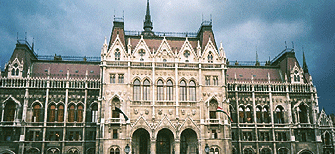 |






|
  
|

|



HATC SAMPLE EDITION:






|
 |
19th February, 2026

State debt-GDP ratio rises to 74.9%


The state debt stood at 74.9% of GDP at the end of 2025, up 1.4 percentage points from 2024, the second consecutive annual increase, according to financial accounts data published by the MNB on Wednesday.
The figure is slightly above the 74.6% previously indicated by Economy Minister Marton Nagy.
The last higher year-end reading was recorded in 2021.
The general government’s net financing requirement amounted to 4.7% of GDP for 2025.
Although this metric does not fully correspond to the EU’s ESA accrual-based deficit measure, the two indicators typically move in tandem.
On that basis, last year’s deficit narrowed from 5.1% of GDP in 2024. Nagy had earlier projected a 4.9% result. (portfolio.hu)
|
19th February, 2026

New study finds Hungary is poorest EU member state


The European Commission’s Joint Research Centre launched the ABSPO pilot project in 2018, introducing an “absolute” measure of poverty based on the costs of meeting basic needs for individuals and households.
Under this methodology, 31.9% of Hungarians – more than double the EU average of 15.7% – fall below the poverty threshold, placing the country among the poorest in the EU.
Unlike official indicators such as AROP and AROPE, ABSPO shows a significantly higher share of deprived people in many Eastern and Central European countries compared to Western Europe.
Yet, several regional peers, including the Czech Republic and Poland, have achieved far greater success in reducing poverty than Hungary.
Inflation since 2021 has pushed Hungary’s poverty thresholds sharply higher.
In 2024, a single adult required an average monthly expenditure of Ft 298,000, a married couple Ft 474,000, and a family of four Ft 677,000.
These amounts are nearly twice the subsistence minimum calculated by the Central Statistics Office until 2015 and exceed other recent estimates.
The ABSPO thresholds are deliberately set above mere subsistence, aiming instead to define a “decent living” consistent with a European standard of living. (telex.hu; hvg.hu; portfolio.hu; 24.hu)
|

|
|
|
 Contact Contact

 Free Trial Subscription Free Trial Subscription
|
 |



